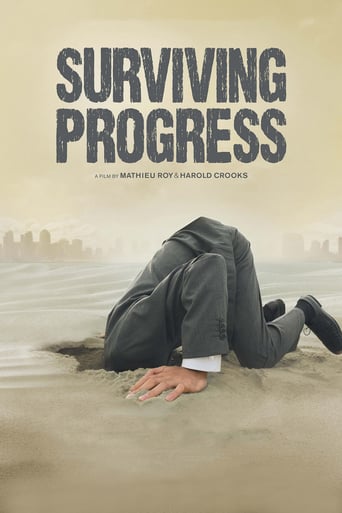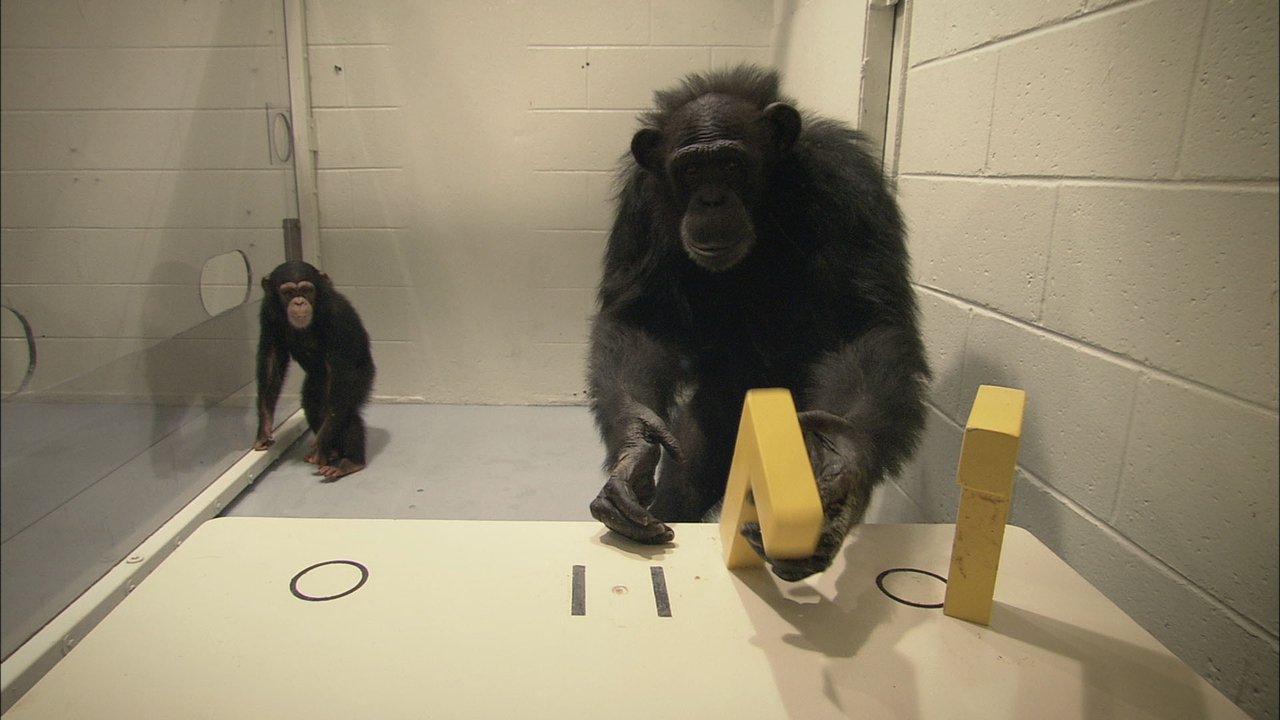mkivtt
What a terribly poor documentary. The makers apparently couldn't decide whether to complain about capitalism, the environment, or Wall Street, and they jump back and forth without much of any cohesion. One good example is that after ~15 minutes of talking about progress, they jump to some guy in China, only to spend the next 15 minutes covering his tour guide business; something that has absolutely no bearing whatsoever on anything covered before or after. These guys sure have a thing or two to learn about editing and storyboarding.Oh, did I mention the entire film has nothing to do with progress? It's merely an anti-capitalist rant that says we should "forgive all debts" (as if private property rights didn't make this the greatest nation on earth), cut earth's population by two thirds (let me guess.. the socialist elite would of course be chosen to survive, right?) and that consumption is bad, bad, bad (the socialist elite will tell you what you're allowed to eat, do and own... and of course they themselves will be exempt).What a pathetic piece of garbage.
TxMike
I was glad to find this documentary film available on Netflix streaming movies. But in a real sense that fact itself is part of the indicator that as a species, we may have doomed ourselves by our never-ending desire for progress, ways to get more, better, faster.The film contains the idea that the past 200 or so years has been a great "experiment", beginning with the industrial revolution. Humans have a natural curiosity and a desire for improving things that separate us from the rest of the animal kingdom. Therefore when we began to make things better, bigger, faster, we also reduced the mortality rate via medicines and health care. As an example, today it takes three years to increase the population of the world as much as it took 13 centuries not long ago.Common sense tells us that if we continue to increase the human population at the same or similar rate, which requires the expenditure of more and more natural resources to sustain all that, we are no longer "living off the interest" of our natural resources, but instead are "drawing down the principal", to use a financial investment analogy, and sooner or later it will all collapse.Many experts in various fields across the globe are given time in this documentary, and no one has a simple answer. For example, controlling population, maybe even to get it down to 1/3 of what it is today, runs directly in opposition to most religious beliefs. Or getting profit-minded major corporations and financial institutions to operate for the betterment of humanity runs counter to their goals of increasing profit.I too believe most of what is presented in this film. I had even already been looking at the issue from another perspective, namely if we continue to make more and more with fewer and fewer workers as a result of automation, while the population continues to increase, where will all the workers find jobs? It seems to me the rich will just get richer and the poor get poorer, and at some point there will be a big revolt.Interesting film on a very difficult, but also critically important, issue. The honored physicist Steven Hawkin weighs in, he says if we can survive for another 200 years, then the human species may just be fine. He thinks we will find a way to go into space and find ways to colonize away from the Earth.I am not sure I agree. It seems to me there will be a giant crisis within the next 200 years, accompanied by mass killings with only a fraction of the population surviving. Then, as movies and TV series' often depict, a comparatively small band of people will work together to repopulate the Earth. None of us will be around to know.
fitimh
There are very many documentaries of this sort, where the goal of it is to convince the viewer of the message they're trying to convey. In so doing, we get a completely one sided argument, looking more as an indoctrination video, then as a informative source. But the message it tries to convey is so important, that every effort to bring this issue to the attention of the public, is needed if we're to avert a major catastrophe.The documentary starts by explaining how human nature is not designed to deal with the complexity of 21st century life. As the movie progresses it goes in more and more situations of how today's civilization (mainly the rich countries) is on a course to destroy our environment which may very well bring the end to our civilization.My main point of contention lies in the fact that the situation is presented as a scenario that requires total abandonment conventional approaches and when one is presented, the filmmakers present a counter argument based on nothing but an opinion. Having a science background I tend to look for supporting and opposing information for an issue before coming to a conclusion, whereas this movie presents only one sided biased point of view. Therein lies the problem, which is inherent of today's society, that is preventing any progress in developing a more sustainable way of life. Our society is completely ignorant of the dangers we're facing today, no matter how much one tries to inform, there seems to be a glitch with the way a human brain works that's renders it incapable to respond to pessimistic scenarios. Therefore if society is not willing to even wake up to the fact we're at a crossroads, its impossible for them to change completely the way of life the film is proposing. Whereas the film is not giving any room for any other solution then changing completely our way of life, there's other solutions.The film should have mentioned how the number of people earth could sustain, has increased where even in the 60's it was widely believed that the Earth could not sustain more then 4 billion. The very idea the movie dismissed (that of genetic engineering) has allowed for shift. Another issue I had a problem with is the issue with economics. It's true economics is not a science, but not because, as Dr. Suzuki puts it "view environmental impact as externality" but because economy is dependent on humans. Environmental concerns are constant, predictable, thus can be taken into account in a scientific sense. Human beings on the other hand, are unpredictable, reactionary, and utterly irrational, thus making any conclusions that would stand scientific inquiry impossible.This film is important because it can raise awareness, but fails on impartiality. So if a person with an opposing point of view, I believe will dismiss the whole thing as left wing propaganda, therefore it won't change anybodies misconceptions.
DavidTheWise33
I was lucky enough to attend a screening at my local university with the director of this documentary, it is a fascinating little piece about the social and economical dynamics of the present day compared to ancient mighty civilizations that have fallen. It features appearances by many notable speakers including Jane Goodall, David Suzuki and Stephen Hawking.It's a fascinating study of where we stand now and where we are heading.It touches upon many recent topics as well, which might date it slightly, but otherwise, it's a great viewing experience. I definitely recommend this documentary, it will lead you to question today's society and provide much food for thought.


 AD
AD



